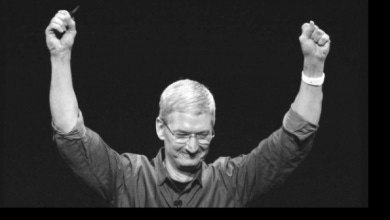What do Apple’s retail stores have to do with solution providers? Plenty. The more Apple Watches are out there in the wild, the more BYOD-opportunity will surface for enterprise mobility solution providers.

To own an Apple (AAPL) Watch, shoppers either will have to go to an Apple retail store or visit its online site, or purchase the smartwatch at a handful of department stores and boutiques such as Galeries Lafayette in Paris, Isetan in Tokyo and Selfridges in London.
With some estimates pegging the number of units at 10 million or more of the Watch Apple might ship for the remainder of this year, it seems more than obvious that the impact on the vendor’s retail stores will be significant.
What do Apple’s retail stores have to do with solution providers? Plenty. The more Apple Watches are out there in the wild, the more BYOD-related issues will present themselves to IT security administrators and the more opportunity will surface for enterprise mobility solution providers.
With some 453 Apple retail locations worldwide–265 of which are in the U.S.–visited by 120 million shoppers last quarter, it doesn’t take rocket science to understand the pull that Apple commands with its stores in the overall retail market.
And, as the Wall Street Journal reported, Apple’s stores already are so popular with shoppers that they contribute an upward bounce to overall mall traffic and sales.
Imagine if the Watch takes off as predicted, how much heft that will add to Apple’s already strong retail position?
According to industry executives cited by the Journal, Apple has used the leverage gained from lifting sales at the malls in which it operates by some 10 percent to pay no more than 2 percent of its sales per square foot in rent, or a fraction of the typical tenant paying about 15 percent.
“As department stores close, Apple is replacing them as the main driver of traffic to the mall,” Raymond Cirz, chairman of real estate consultant Integra Realty Resources, told the Journal.
According to Cirz, in 2013, at 45 enclosed shopping malls, Apple accounted for about 14 percent of gross sales, up dramatically from 2.5 percent in 2002. More impressively, at some malls in New England, Apple’s stores command one-third of total sales, he said.
If Apple outfits its retail stores to sell the Watch as a fashion and luxury item where customers can interact with a trained sales consultant as the VAR Guy previously reported, the percentage of overall mall sales contributed by Apple is likely to go up.
Enterprise mobility solution providers must be smiling at the prospect.
About the Author(s)
You May Also Like


